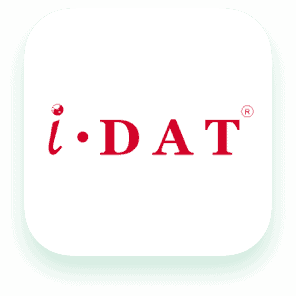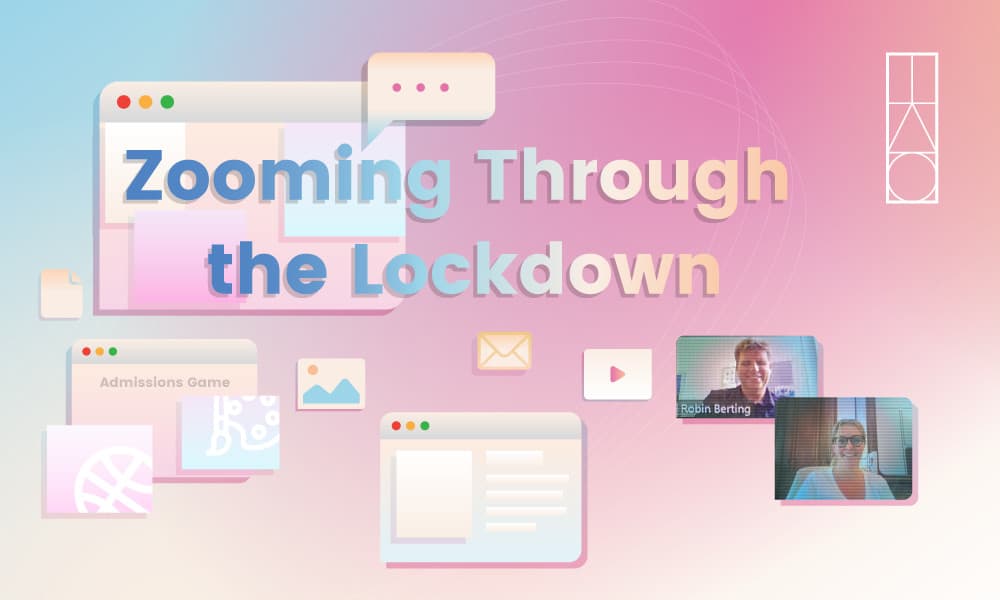Robin wrote this article based on his experiences during Spring 2020 while he was Admissions Manager at International School of Brussels.
The COVID-19 pandemic has hit international schools hard and it has interrupted the way we have traditionally been doing the admissions interview and tour in a number of ways. As we enter the 2020-21 school year, there are many questions about how school will continue to look. One thing is certain though: thanks to the widespread use of Zoom during the lockdown, admissions will never be the same again.
After discovering in early March 2020 that a member of the International School of Brussels community had contracted COVID-19, the campus was closed and the school started a very successful programme of distance learning. Most administrators and the entire Advancement Team, including Admissions, Communications and Development began working remotely from home.
Focus on Learning Instead of on Location
The ISB Advancement Team, led by Director of Advancement David Willows, made a special effort to prepare virtual visits through Zoom interviews that would emulate as closely as possible a real physical visit. The Communications Department immediately set to work to help support the Admissions Team in a number of ways. On the one hand, they adjusted key landing pages on the website to deal with the new reality, starting with the development of the slogan “The campus is closed but learning continues”. It included updates on the coronavirus situation at ISB and on the comprehensive distance learning programs underway at the school. The Communications team also nicely modified the admissions section of the website so that prospective parents would know that while visits and tours to the campus were no longer possible, they could instead have quality “virtual” tours through Zoom interviews with admissions professionals.
The Communications team also focussed on upgrading the digital resources that the admissions staff would be able to share while interviewing prospective families during the Zoom calls. They created an admissions resource link that contained the digital resources used on a large screen in the ISB Experience Room for physical visits: charts showing courses offered at different grade levels or lists of after school activities; maps showing the school bus network or school demographics by nationality; and photo and video galleries. They even added a www.menti.com link so that prospective families could give feedback after calls.
More Pluses than Minuses
Zoom interviews began almost immediately. As it turned out, the duration of the calls usually about sixty to seventy minutes almost equalled that of physical visits. Interviewers generally followed this pattern:
- welcoming the family and framing the structure of the call;
- asking a few basic questions about the prospective student and the family;
- doing ISB’s well known card activity for a few minutes to find out what is most important for the family;
- engaging in the main conversation;
- and then finishing off with an explanation of the application process and a recap of any necessary follow up before saying goodbye
Doing Zoom interviews presented a number of immediate challenges. When you conduct an interview via the internet it is harder to read body language and you cannot rely on props or cues in the room. My colleague ISB Admissions Officer Sara Sulaimani and I agree that Zoom interviews are more tiring than interviews on campus as they require non stop focus. Also, some people still insisted on seeing the campus even after having done a Zoom interview. Clearly, there is nothing like coming to the campus to see it, and several families said that they would not apply—or that they would not accept our offer for places until they had a chance to step on our grounds.
In spite of these challenges, however, the Zoom interviews enabled extremely rich conversations and even turned out to have some advantages over physical visits. The pandemic makes for an effective icebreaker and a very meaningful one at that since we all have something important to say about how we have been living through it. Also, many of my admissions colleagues agree that interviewing people in their homes while we interviewers are also in our own homes brings about a degree of intimacy that an interview on campus does not and this makes for a stronger connection. And perhaps surprisingly we had virtually no IT issues to deal with.
Zooming into the Future: Connecting with a Wider Range of People
The most obvious advantage to the Zoom interviews, and a good reason for continuing them even after the pandemic has ended, is that you can interview people no matter where they are. We now give the same level of attention to all people no matter where they are. Now, not only have we been able to have extensive interviews with people coming to our city, but also with those who cannot come for a visit. Instead of a simple email response or phone call to respond to their inquiry, they now get our full attention and with all the digital resources that we have at our disposal. People in Boston have been able to get as much service from the admissions team as people in Brussels.
Another change is that it became easier to encourage a wider range of people to participate in each individual interview. Many interviewees were locked down at home with their kids so it was easy for them to call their children over to their computer and have them join the call. In some cases, families looked forward to the interview as an exciting event in an otherwise boring lockdown with few options for entertainment! In fact, in several cases, people at multiple locations joined the interviews simultaneously. We often interviewed separated families with family members at different locations around the world at the same time. On several occasions, colleagues such as division leaders, heads, teachers, counsellors, and others joined the interviews from their homes, adding their expert voices. Finally, in addition to interviewing prospective parents, both the broader Advancement team and the Admissions team have been able to conduct regular Zoom team meetings, with everyone sitting comfortably in their homes.
Once the pandemic is over and we can all go back to working at our schools, it will be a great relief for everyone. COVID-19 is a tragedy that has resulted in thousands of deaths around the world and had a terrible economic impact that is still to be measured, not only for our schools but for the whole planet. Still, this process of Zooming from home has given us the ability, the confidence, and the motivation to do many more remote interviews with prospective families than we would have done in the past, to the benefit of all. There is no looking back now.
The Pros and Cons of Working From Home
One of the toughest questions that parents have asked us during the pandemic has been “How will school look in September? Will it be back to normal or will classes be taught remotely?”
Up until the time of writing this in June, we usually answered: “We don’t know yet, but it will probably be some kind of hybrid mix of the two.”
What about admissions? When the pandemic dies down and admissions staff at international schools around the world eventually return to campuses, will admissions offices adopt a hybrid approach, with more work done from home? Below are just a few of the points that might come up in debates about this. It will be interesting to see over the next few months how many of us start working at least partially from home. Here are just a few of the advantages and disadvantages of each:
Advantages of Working From Home
- No commute; save time and money – it is better for the environment
- Lunches at home with family members
- More time for family and for exercise
- You can create your own daily routine and schedule
- Depending on your home and office environment, potentially fewer distractions for focused work like writing.
Disadvantages of Working From Home
- Can’t give prospective families the true feel of the school off campus
- Fewer opportunities to connect informally with other staff members
- Can get disconnected with what is happening at the school
- Danger of working too much, of not properly disconnecting and recharging the batteries
















 All Services
All Services


